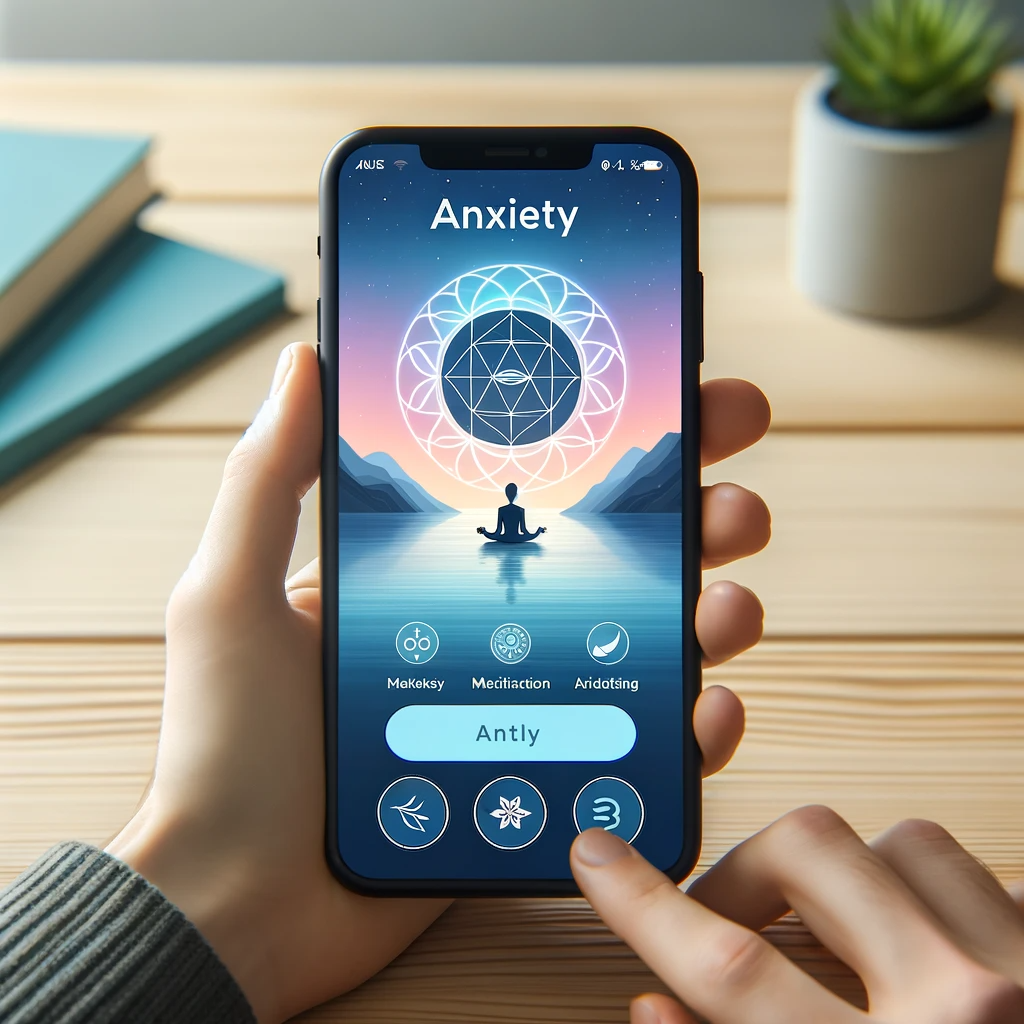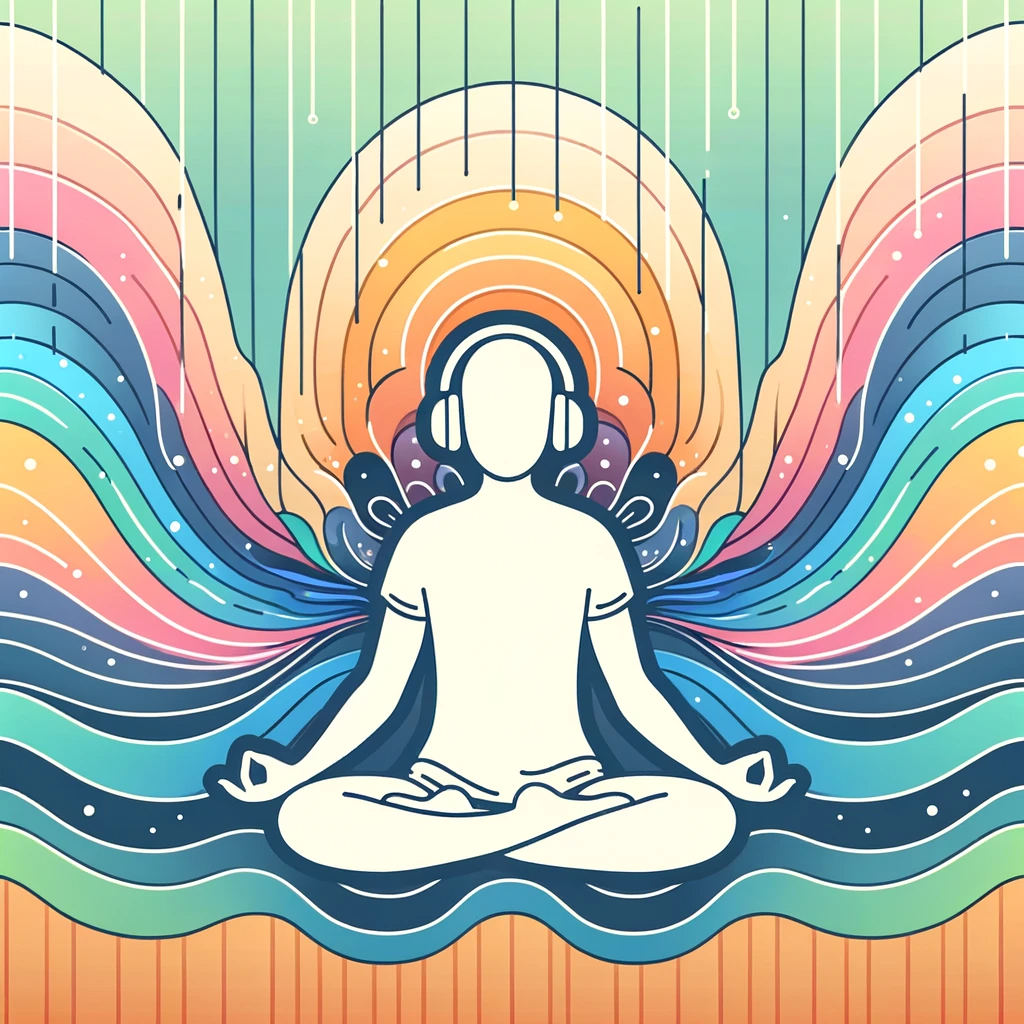Exploring the Connection with Meditation for Anxiety
Anxiety is a common mental health condition that affects millions of people worldwide. It is characterized by feelings of fear, worry, and unease, and can often interfere with daily activities and overall quality of life.
Many individuals who struggle with anxiety turn to various coping mechanisms and treatments to alleviate their symptoms. One such method that has gained significant attention in recent years is meditation for anxiety.

Meditation has long been used as a tool for promoting relaxation, reducing stress, and promoting overall well-being. It involves focusing one's attention and eliminating the stream of thoughts that often contribute to anxiety.
BE able to practicing meditation for anxiety, individuals can cultivate a sense of inner calmness and learn to better manage their anxious thoughts and feelings.
Through various meditation techniques, individuals can develop a greater sense of self-awareness, improve their ability to regulate their emotions. and ultimately reduce the impact of anxiety on their lives.
The Power of Guided Meditation in Easing Anxiety
Guided meditation has emerged as a powerful tool in easing anxiety. By combining the benefits of meditation with personalized guidance, individuals can effectively navigate their anxious thoughts and emotions. With guided meditation, practitioners are provided with step-by-step instructions, often accompanied by soothing music or calming visualizations. that help them focus their attention and achieve a state of relaxation.

This structured approach makes guided meditation particularly appealing to those new to meditation or those who find it challenging to quiet their minds. By following the guidance offered, individuals can cultivate a sense of calm and inner peace, reducing the intensity of anxious feelings.
One of the key advantages of guided meditation for anxiety is its ability to provide a sense of support and reassurance. The gentle voice of the guide acts as a beacon of comfort, guiding individuals through the meditation practice and offering soothing words of encouragement. This support can be particularly beneficial during moments of heightened anxiety, when individuals may feel overwhelmed or uncertain.
The guide's presence helps to anchor individuals, providing a sense of security and stability amidst the storm of anxious thoughts. Moreover, guided meditation allows individuals to feel connected to a larger community of practitioners who are also seeking relief from anxiety. This sense of belonging can foster a sense of solidarity,
reminding individuals that they are not alone in their journey towards managing anxiety through meditation.
Exploring the Benefits of Using an Anxiety Meditation App

Anxiety can be a challenging condition to manage, and finding effective methods to alleviate its symptoms is essential. One beneficial resource that can aid individuals in their journey towards calmness and balance is an anxiety meditation app. These apps are designed specifically to guide users through meditation practices that target anxiety, providing guidance and support whenever needed.
One of the notable benefits of using an anxiety meditation app is its convenience. With these apps readily available on smartphones or tablets, individuals can access calming meditation exercises at any time and in any location. Whether at home, at work, or on the go, the app can be a constant companion, offering solace and relaxation amidst the chaos of daily life. Moreover, these apps often provide a variety of meditation techniques tailored to address different forms of anxiety, ensuring that users can find the approach that best suits their individual needs. By integrating mindfulness and breathwork exercises, these apps can effectively help individuals develop a sense of inner peace and reduce anxiety symptoms over time.
Techniques for Effective Anxiety Meditation
Anxiety meditation techniques can be beneficial in reducing the symptoms of anxiety and promoting a sense of calm and relaxation. One effective technique is focused breathing, where the individual takes slow, deep breaths and focuses their attention on the sensation of each inhalation and exhalation. This technique helps to bring the mind into the present moment and quiets racing thoughts, allowing for a greater sense of mental clarity and tranquility.

Another technique is progressive muscle relaxation, where the individual systematically tenses and releases different muscle groups, promoting a deep sense of relaxation throughout the body. This technique helps to relieve tension and physical discomfort often associated with anxiety, allowing for a more peaceful state of mind. By incorporating these anxiety meditation techniques into a regular practice, individuals can effectively manage their anxiety and experience a greater sense of calm and well-being.
Meditation Techniques for Managing Panic Attacks
Meditation has proven to be a beneficial practice for managing panic attacks. When it comes to dealing with the overwhelming symptoms of panic attacks, finding effective coping strategies is crucial. One technique that has shown promise is meditation for panic attacks. By focusing on the breath and redirecting attention away from anxious thoughts, individuals can create a sense of calm and relaxation during a panic attack episode. This mindfulness practice allows individuals to ground themselves in the present moment, promoting a sense of control and reducing the intensity of the panic attack.
One specific meditation technique that can be helpful for managing panic attacks is deep belly breathing. During a panic attack, breathing often becomes shallow and rapid, contributing to increased feelings of anxiety. By deliberately slowing down the breath and taking deep belly breaths, individuals can activate the body's relaxation response and counteract the sensations of panic. This technique involves inhaling deeply through the nose, allowing the breath to expand the belly, and exhaling slowly through the mouth. This rhythmic breathing pattern helps to regulate the body's stress response and promote a sense of calmness and stability, making it an effective tool for managing panic attacks.
Cultivating Mindfulness through Meditation for Anxiety
Mindfulness meditation for anxiety is a practice that involves cultivating moment-to-moment awareness, with an emphasis on acceptance and non-judgment. By directing our attention to the present moment, we can train our minds to break free from the patterns of anxious thoughts and worries that often consume us. This form of meditation encourages a deeper understanding of our thoughts and emotions, allowing us to observe them without getting caught up in them.
Through mindfulness meditation, individuals with anxiety can learn to develop a sense of detachment from their thoughts and feelings, preventing them from spiraling into a state of overwhelm. By focusing on the sensations of the breath, bodily sensations, or even sounds, individuals can anchor themselves to the present moment and create distance from the anxious thoughts that may arise. Over time, this practice can lead to a greater ability to respond to anxiety with calmness and clarity, ultimately reducing its impact on daily life.
Exploring the Relationship between Stress, Anxiety, and Meditation
Stress and anxiety are common experiences in today's fast-paced and demanding world. They can have detrimental effects on both our physical and mental well-being. Many people turn to meditation as a way to alleviate these symptoms and find a sense of calm and peace within themselves.
Meditation has been found to be an effective tool for managing stress and anxiety. Meditation trains our minds to focus on the present, reducing stress by lowering cortisol levels, decreasing heart rate and blood pressure, and enhancing relaxation. It fosters mindfulness, increasing awareness of thoughts and emotions, aiding in stress and anxiety management.
Finding Relief: How Meditation Can Help Reduce Anxiety
Meditation has emerged as a powerful tool for finding relief from anxiety. Many individuals, plagued by constant worry and stress, have turned to meditation as a means of alleviating their anxiety symptoms. By incorporating meditation into their daily routine, individuals can cultivate a sense of calm and relaxation, which helps to reduce the intensity of their anxiety.
One of the key benefits of meditation for anxiety relief is its ability to promote mindfulness. Mindfulness, a state of being fully present at the moment, allows individuals to observe their anxiety without judgment or attachment.
BY focusing on their breath or a specific point of focus, individuals can learn to detach from their anxious thoughts and emotions. This practice enables them to develop a sense of control over their anxiety and reduces the impact it has on their daily lives.
Calming the Mind and Body: A Closer Look at Calming Meditation for Anxiety
Calming meditation for anxiety helps individuals find inner peace by focusing on the present and their breath, quieting the mind, and restoring tranquility. It offers a safe space to release worries and fears, fostering inner calm. Practitioners learn to observe thoughts without judgment, gently refocusing on their breath or a focal point. This consistent practice brings peace, less reactivity, and liberation from anxiety, enhancing resilience and ease in daily life.
Managing Generalized Anxiety Disorder through Meditation Techniques
Generalized Anxiety Disorder (GAD) is a common mental health condition characterized by excessive worry and anxiety about various aspects of life. It can cause significant distress and negatively impact daily functioning. While there are various treatment options available, meditation has shown promise in managing GAD symptoms.
Meditation for generalized anxiety disorder involves the practice of focusing the mind and achieving a state of calm and relaxation. By incorporating mindfulness techniques, meditation can help individuals with GAD observe their thoughts and feelings without judgment, allowing them to develop a greater sense of awareness and control. By regularly practicing meditation, individuals with GAD may experience reduced anxiety levels, improved mood, and increased overall well-being.
While meditation should not replace professional treatment, it can be a valuable complementary tool in managing generalized anxiety disorder.

What is generalized anxiety disorder (GAD)?
Generalized anxiety disorder (GAD) is a mental health condition characterized by excessive and persistent worry or anxiety about everyday situations.
Is meditation an effective treatment for generalized anxiety disorder?
Yes, meditation is an effective treatment for generalized anxiety disorder. It can help reduce anxiety symptoms and promote a sense of calm and relaxation.
What is the connection between anxiety and meditation?
Meditation can help reduce anxiety by calming the mind and body, promoting relaxation, and cultivating mindfulness. It allows individuals to observe their anxious thoughts without judgment and create a sense of distance from them.
How does guided meditation help in easing anxiety?
Guided meditation provides a structured approach to meditation, where a narrator guides you through a series of instructions and visualizations. This can help individuals with anxiety stay focused and reduce anxious thoughts.
Are there any anxiety meditation apps available?
Yes, there are several anxiety meditation apps available that offer a variety of guided meditation sessions specifically designed to manage anxiety. These apps can be downloaded on smartphones and used at one's convenience.
What are some effective anxiety meditation techniques?
Some effective anxiety meditation techniques include focused breathing, body scan meditation, loving-kindness meditation, and mindfulness meditation. These techniques can help redirect anxious thoughts and promote relaxation.
Can meditation help manage panic attacks?
Yes, meditation can be beneficial in managing panic attacks. By practicing meditation regularly, individuals with anxiety can learn to calm their minds and bodies, reducing the intensity and frequency of panic attacks.
What is mindfulness meditation, and how does it help with anxiety?
Mindfulness meditation involves paying attention to the present moment with non-judgmental awareness. It helps individuals with anxiety by allowing them to observe their anxious thoughts and emotions without getting caught up in them, thus reducing anxiety.
What is the relationship between stress, anxiety, and meditation?
Stress and anxiety often go hand in hand, and meditation can help reduce both. By practicing meditation, individuals can activate the body's relaxation response, counteracting the negative effects of stress and reducing anxiety.
Can meditation provide relief for anxiety?
Yes, meditation can provide relief for anxiety by promoting relaxation, reducing stress levels, and helping individuals develop a more mindful and calm approach to their anxiety symptoms.
How does calming meditation help with anxiety?
Calming meditation techniques, such as focused breathing and visualization exercises, can help individuals with anxiety calm their minds and bodies, promoting a sense of relaxation and reducing anxiety symptoms.
Can meditation be used as a standalone treatment for generalized anxiety disorder?
While meditation can be highly effective in managing generalized anxiety disorder, it is often used in conjunction with other treatments, such as therapy and medication. It is important to consult with a healthcare professional for an individualized treatment plan.


